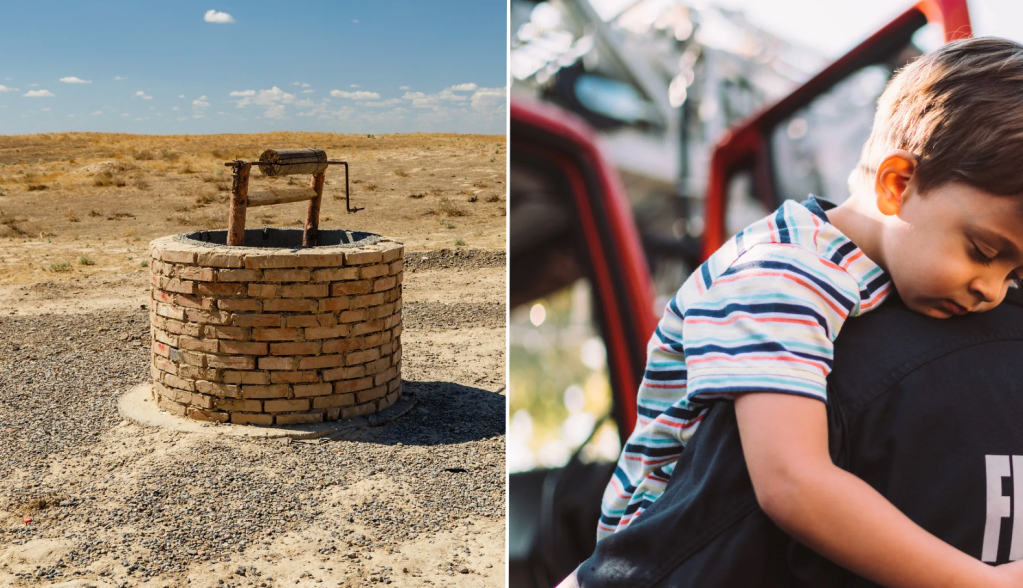Since Akon’s rise to fame, he hasn’t hesitated to use his celebrity for the greater good.
Akon performs at a Peace One Day concert for International Peace Day in the Democratic Republic of Congo. Photo by Phil Moore/AFP/Getty Images.
In addition to participating in charitable events like the Peace One Day concert, he founded the Konfidence Foundation to help impoverished youth in West Africa and the U.S.
And he recently added another act of awesome to his repertoire:
Akon’s working to bring electricity to 600 million sub-Saharan Africans in rural areas.
Yeah, that’s no small feat, but he knows how important it is. Although Akon was born in Missouri, he spent many years growing up in Senegal, where his family lived without electricity. He told Gulf News:
“Not having electricity growing up and then going to the U.S. where I got used to having clean water and light and visiting my family in Africa only to see that not much has changed within a span of 20 years or so is really what inspired me to begin this initiative.”
Through the Akon Lighting Africa initiative, Akon is bringing affordable solar power solutions to Africa. Solar module prices hit a record low last year, which means it’s easier than ever to expand the use of solar energy in countries with limited funds. So with the help of a $1 billion credit line, the initiative pays for the upfront costs so that electicity providers in African countries can pay back the money over time to the initiative in affordable installments.
The initiative isn’t just about power; it’s about em-powering. (Yeah, I said it.)
I’m sorry! I couldn’t resist. GIF via “The Office.”
Access to electricity would obviously be a vast improvement on people’s daily lives: Street lights would improve safety, home lights would allow children to do homework later, and the special skills needed for solar power equipment installation would create jobs.
But Akon doesn’t just want to improve the day-to-day things; he wants to help Africans innovate with solar energy. That’s why the initiative’s work includes creating education opportunities for community members to understand the benefits of solar energy.
An example? They’ve partnered with Solektra International to create a solar academy for local entrepreneurs in Mali — the first of its kind on the African continent.
Akon believes that giving individual Africans access to power will help the continent as a whole.
Mali women make jars under a solar-powered mobile street light. Photo by Habibou Kouyate/AFP/Getty Images.
In an interview with ThinkProgress, Akon said electricity is the key to helping the continent catch up to developed nations. He believes that foreign aid can do more harm than good, so he wanted to use the initiative to invest directly in African individuals and businesses. While it’s a for-profit venture, Akon shared in a live chat that proceeds go to African banks so the money can stay within the local economy.
So far, they’re making great strides.
Photo by U.K. Department for International Development/Flickr.
In just a year, Akon’s initiative is operating in 11 countries, including Senegal, Mali, and Sierra Leone.
According to The Wall Street Journal, Akon partially attributes the quick expansion to the fact that countries can see the benefits of solar power before committing to using it. Since the ALA initiative has the funds, they front the money to launch a free pilot program in rural areas. With a risk-free introduction to the benefits of solar energy, countries have been able to make a confident, informed decision to sign on.
And there’s more to come: Just this week, the initiative presented in Paris during the UN climate negotiations (COP21) to share the impact they’re having.
As an American-born child with family in Africa, I know how big a deal this initiative is. While I’m fortunate enough to have family in Kenya who are among the 5% of Africans in sub-Saharan Africa with electricity (compared to 80% of the whole world), I’ve seen firsthand how many Kenyans living without it doesn’t just limit their own lives; it affects the country as a whole.
























